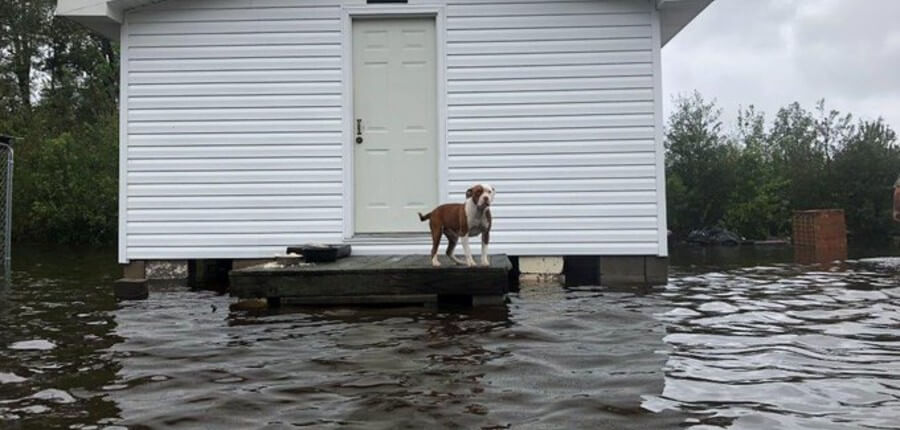It pays to be prepared before a disaster strikes, especially when a little planning may well mean the difference between life and death for a beloved animal companion.
Take steps now to prepare your animal companions for the next big catastrophe:
- Have an animal emergency kit ready. Disasters, natural or otherwise, can happen when you least expect it. Instead of scrambling for supplies and losing valuable time that may be needed to evacuate or save a life, be prepared with a kit. We suggest that it include a cat carrier (if applicable), a leash, a towel or blanket, thick gloves, and several days’ supply of cat or dog food. Don’t forget any important medication for your animals, and it’s a good idea to include current photos of them in case you become separated.
- Make sure that your animals are microchipped and wearing current identification. Should you and your animal companions end up being separated during a disaster, this will make it easier for you to be reunited.
- If you need to evacuate, have a plan to keep the whole family together. If it isn’t safe for you to stay at home, it isn’t safe for your animals to do so, either. Be sure to prepare your animals early on—getting a frightened cat into a carrier quickly can be a difficult process. Decide ahead of time where you will go if you need to evacuate, as not all emergency shelters accept animals. If you’re not home when your neighborhood needs to be evacuated, make an arrangement with a friend or neighbor who can help get your animals to safety.
- If authorities force you to leave your animals behind, be sure to leave them indoors with food and water available. You can start preparing now by prominently placing a rescue alert sticker, like the one seen here, in windows on all four sides of your residence to notify rescue workers that animals may be trapped inside.
If you’re forced to leave animals behind, never turn them loose outdoors—they won’t be able to survive on “instinct.” Domesticated animals rely on their human guardians for many things and are quite vulnerable outdoors. Leave them in a secure area indoors with access to upper floors in case they need to escape rising floodwaters or other threats. Leave out at least a 10-day supply of water by filling anything and everything that you have with water. Fill sinks, bowls, pans, and Tupperware containers—and even leave the toilet bowl open if it’s free of chemical disinfectants. Also, leave out as much dry food as possible. (Wet food will go bad quickly.)
With much of the coastal United States in the middle of hurricane season and much of the West threatened by wildfire season, it’s important to remember that the question isn’t whether a disaster will strike—it’s when. When you’re prepared, all your loved ones can get through a catastrophe safely. Want to do more today? Donate to PETA’s Animal Emergency Fund and help provide our Emergency Rescue Team with the resources that it needs to help as many animals as possible.





